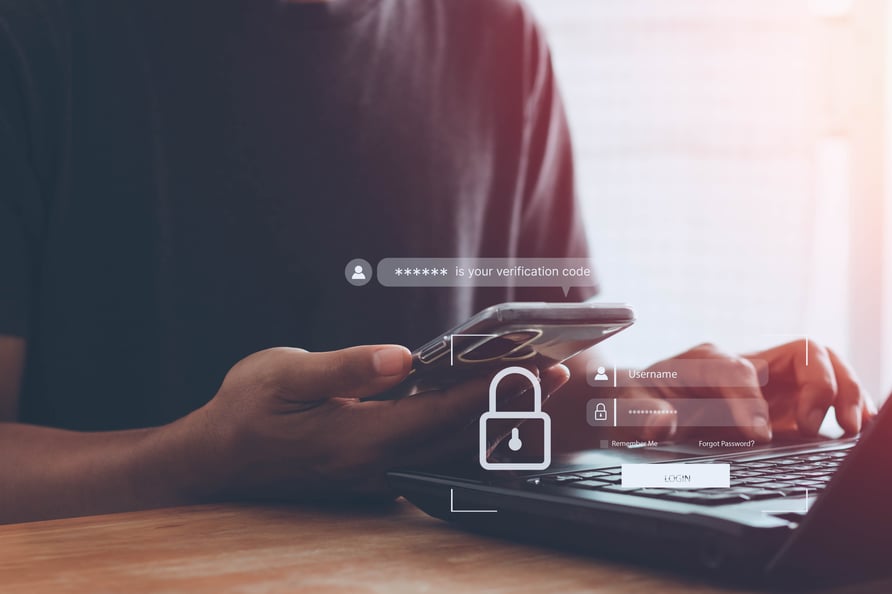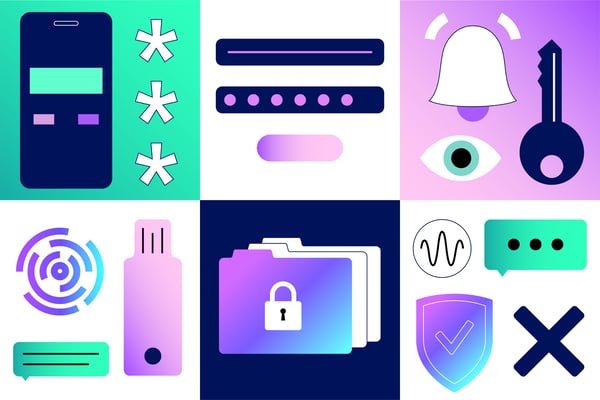
Multifactor Authentication (MFA) has become a threat deterrent for cyber attacks, gaining significant traction as a new standard defence mechanism for SMB's. Is your business embracing this line of defence?
In today's digital landscape, where cyber threats loom large, safeguarding sensitive information is paramount. One effective defence mechanism that has gained significant traction is Multifactor Authentication (MFA). In this blog, we'll delve into what MFA is, the threats it guards against, and the compelling reasons businesses should embrace it, with an example of what happens if you don't.
What is MFA?
Multifactor Authentication (MFA) is a security measure that goes beyond the traditional username and password combination. It adds an extra layer of protection by requiring users to provide two or more forms of identification before granting access to an account or system. This typically involves something the user knows (like a password), something they have (such as a smartphone or a security token), or something they are (biometric data like fingerprints or facial recognition).
With the ever-growing digital landscape, MFA has become a necessity for organisations aiming to fortify their cybersecurity posture and provide a safer environment for both employees and customers alike.

Protecting Against Cyber Threats with MFA
Multifactor Authentication (MFA) acts as a pivotal component in a comprehensive defence strategy against an array of cyber threats, which encompass phishing attacks, password breaches, and unauthorised access attempts. By necessitating the provision of multiple forms of verification, MFA significantly curtails the likelihood of a solitary compromised factor resulting in a breach.
An illuminating article published by CSO underscores the escalating nature of threats. It sheds light on a Russian state-run cyber espionage group's endeavour to exploit Microsoft Teams as a means to circumvent MFA and infiltrate the systems of small and medium-sized businesses.
“Our current investigation indicates this campaign has affected fewer than 40 unique global organisations,” Microsoft said in a report. “
This instance underscores the paramount importance of deploying MFA with precision. Furthermore, it highlights the urgency of educating users about potential threats, including the importance of refraining from entering MFA codes received through unsolicited messages on networks.
Despite MFA's decades-long existence and strong endorsement by cybersecurity professionals, a 2022 report from 'Help Net Security' indicates that 55% of SMBs remain uninformed about its security advantages. Among these small to medium businesses, 54% have yet to implement MFA, while 39% of the adopters restrict its usage to safeguarding crucial hardware, software, and data while ignoring the rest.
In essence, the strategic implementation of MFA, coupled with comprehensive user education, stands as a formidable barrier against evolving cyber threats. This emphasises the critical role of organisations in not only adopting MFA but also nurturing a cyber-aware culture to collectively thwart potential risks.
5 Reasons to Implement MFA Today
1. Preventing Unauthorised Access: MFA ensures that only authorised individuals can access sensitive information. Even if a password is stolen, hackers would still need an additional factor to gain entry, making it significantly harder for them to breach accounts.
2. Mitigating Phishing Attacks: Phishing attacks often trick users into divulging their credentials. With MFA, even if a user falls for a phishing attempt, the attacker would still lack the second verification factor, rendering the stolen password useless.
3. Strengthening Compliance: Many industries are subject to regulatory compliance requirements around data controls. MFA aids in meeting these mandates by providing an additional layer of security, enhancing protection of sensitive data.
4. Safeguarding Remote Access: With the rise of remote work, secure access to company resources is paramount. MFA ensures that only authorised personnel can access these resources, reducing the risk of data breaches from compromised home networks.
5. Future-Proofing Security: As technology evolves, so do cyber threats. MFA adapts to these changes by evolving alongside technological advancements. This forward-looking approach keeps businesses one step ahead of potential attackers.
How can Diamond IT help?
Our team of Business Technology Consultants specialise in assisting you in choosing the ideal software and security solutions tailored to your unique business requirements.
We're adept at guiding you through an evaluation of your existing threat defences and aiding you in the selection of the right security solutions and their integrations to safeguard your data and empower your employees and customers to operate in a secure environment.
If you need advice on cybersecurity integrations that can help your business succeed contact our team on 1300 307 907 today.




